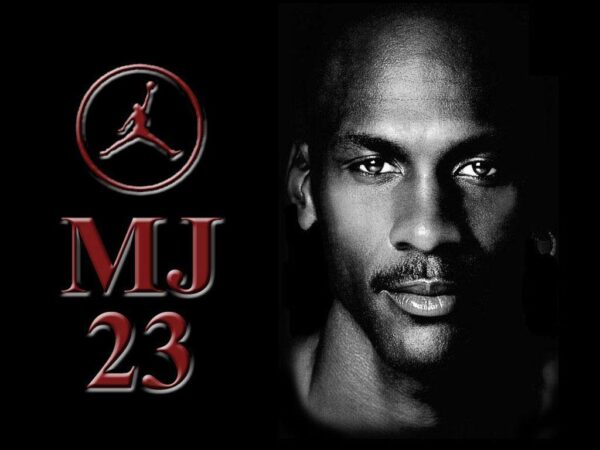Usain St. Leo Bolt is known as lightning Bolt and insane Bolt. He is the fastest man on the planet. His speed is unsurpassed. Usain holds the world record for the 100 and 200 meters with times of 9.58 seconds and 19.19 seconds, respectively. While many people are familiar with his celebrity, they don’t know much about his life or his history. Bolt saw his first success in track as a joke at the beginning of his career. Bolt didn’t take track seriously. As Usain grew older, he realized how important track was to his life and the benefits it could bring. Bolt achieved all these world records despite the ups and downs of his career. His coaches were there to support him through them.
His Childhood
Usain St. Leo Bolt was born in Trelawny, Jamaica, on August 21, 1989. He was raised with his
parents, Jennifer Bolt and Sadiki Bolt. Bolt spent most of his childhood playing football and cricket
with his brother on the streets. Usain grew up on an island that was plagued by war and poverty. His
parents owned a grocery shop, which allowed them to pay their bills and take care of themselves.
His track career began.
As a child, Usain attended Waldensia Primary School. His coach suggested that Usain join track and field because he was a great cricket player and sprinter. One of his coaches, Pablo McNeil, who was an Olympic track athlete, was impressed by Bolt’s speed. McNeil and Usain were a great team and had a good relationship. McNeil was sometimes concerned about Usain’s inability to dedicate himself to his training, but he didn’t give up on him and continued training him. Bolt impressed everyone at 14 with his incredible speed. In 2001, he won his first medal at a high school competition. Usain won a silver medal for the 200-meter race with a time of 22.04 seconds. Bolt became the youngest ever world junior gold medallist and won the 200-meter race at the 2002 World Junior Championship a year later. Everyone was stunned by Usain Bolt’s speed. That year, Bolt was awarded the International Association of Athletics Foundation’s Rising Star Award and the nickname “Lightning Bolt.” Under the direction of Fitz Coleman, Bolt became a professional athlete in 2004. His career began with the CARIFTA Games, Bermuda. He was the first junior sprinter in the 200 meters to break 20 seconds. He won four gold medals at the 2003 CARIFTA Games and another at the 2003 World Youth Championships. His professional career began in 2004 when Usain was selected for the Jamaican Olympic Squad to compete at the 2004 Athens Olympics. Although Usain did not make it to the finals at that event, he set a personal record that would allow him to improve his career. He was able to push himself harder and prove that he could go faster than that time. Glen Mills became Usain’s coach a year later. He encouraged him to treat his work as more than natural talent and to not take it lightly. It was worth the hard work. At the 2007 World Championship, Usain Bolt broke the 200-meter record held by Donald Quarrie for over 30 years. He also won a silver medal. This was just the beginning of his success. He set many more records over the years, making him the most famous man in the world.
injuries.
Despite some great times at the beginning of his career with Usain, there were also injuries that kept him from competing in certain competitions. Usain suffered from severe hamstring injuries after he became a professional athlete in 2004. He was unable to compete in certain races because of this. His hamstring injury at the 2004 World Junior Championship prevented him from qualifying for the finals. It also hampered his chances of making it to the Athens Olympics. The hamstring injury that Usain suffered in 2006 also prevented him from competing at the Commonwealth Games. It takes a lot of training to be the fastest man on the planet. Usain Bolt is a great example of this. You can achieve your goals if you put in the effort. Although Usain did not know it, he was the fastest man on the planet today. All the training that he put in paid off. It’s not easy. You will have ups and downs, but the end result is worth it. Usain was unable to compete in some important races due to injuries, but that didn’t stop his dedication to training hard. Every day is a new opportunity to make better decisions about your life. All my athletes know that it is possible. Although Usain was not the fastest person in the world, it took him a long time to achieve this feat. Do not give up on your dreams. Believe in yourself and keep working hard to achieve them.
World-record breaker
Bolt was motivated by the silver medals received at the 2007 Osaka World Championships. He ran a time of 9.76 seconds with a 1.8 m/s tailwind, improving his personal best from 10.03 s. Bolt ran 9.76 seconds with a 1.8 m/s tailwind on May 3, 2008. This improved his personal record of 10.03 s. Bolt broke the 100-m world record in the Reebok Grand Prix at the Icahn Stadium, New York City on 31 May 2008. Bolt ran 9.72 seconds with a tailwind of 1.7m/s . This was Bolt’s fifth senior 100-m. Gay finished second. ” The commentators pointed out that Bolt seemed to have an advantage psychologically over Gay, the Olympic hopeful. Bolt replied to the claims that he was lazy and said that he had worked hard to reach his goals. Bolt realized that the comments about him being lazy were based on his inability to enjoy the 400 m event. He said that the comments were unjustified and that he worked hard to achieve his potential. Bolt was more focused on practice. A training program to increase his top speed, stamina and endurance, in preparation for London Olympics, had helped improve both his 100m and 200m times.
Guinness World Records
Bolt claimed 19 Guinness World Records, and, after Michael Phelps, holds the second highest number of accumulative Guinness World Records for total number of accomplishments and victories in sports.
1. Fastest run 150 meters (male)
2. Most medals won at the IAAF Athletics World Championships (male)
3. Most gold medals won at the IAAF Athletics World Championships (male)
4. Most Athletics World Championships Men’s 200 m wins
5. Most consecutive Olympic gold medals won in the 100 meters (male)
6. Most consecutive Olympic gold medals won in the 200 meters (male)
7. Most Olympic men’s 200 meters Gold medalsq
8. Fastest run 200 meters (male)
9. Most Men’s IAAF World Athlete of Year Trophies
10. First Olympic track sprint triple-double













